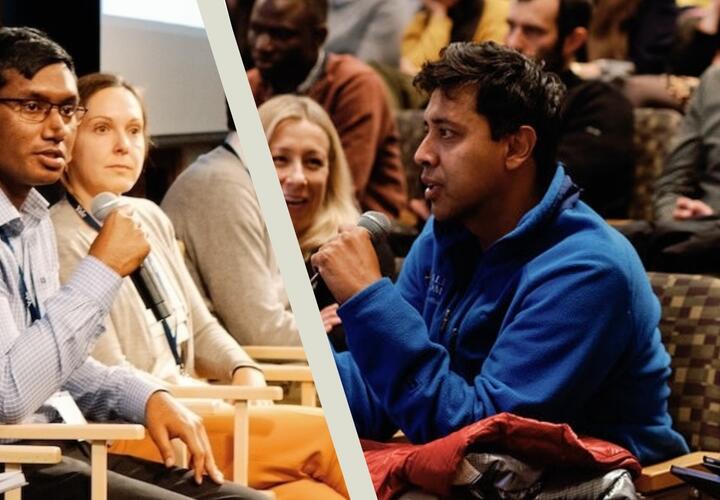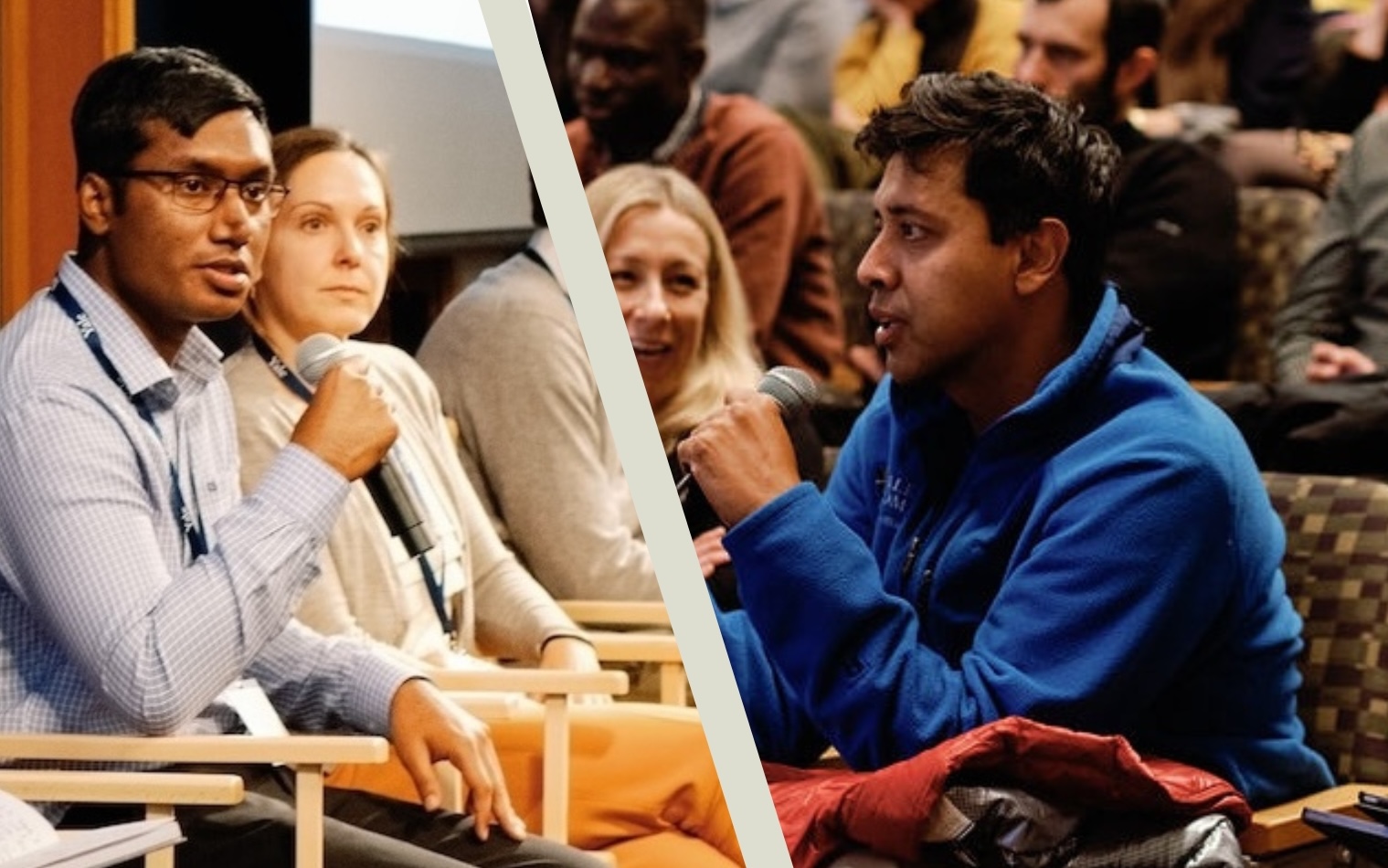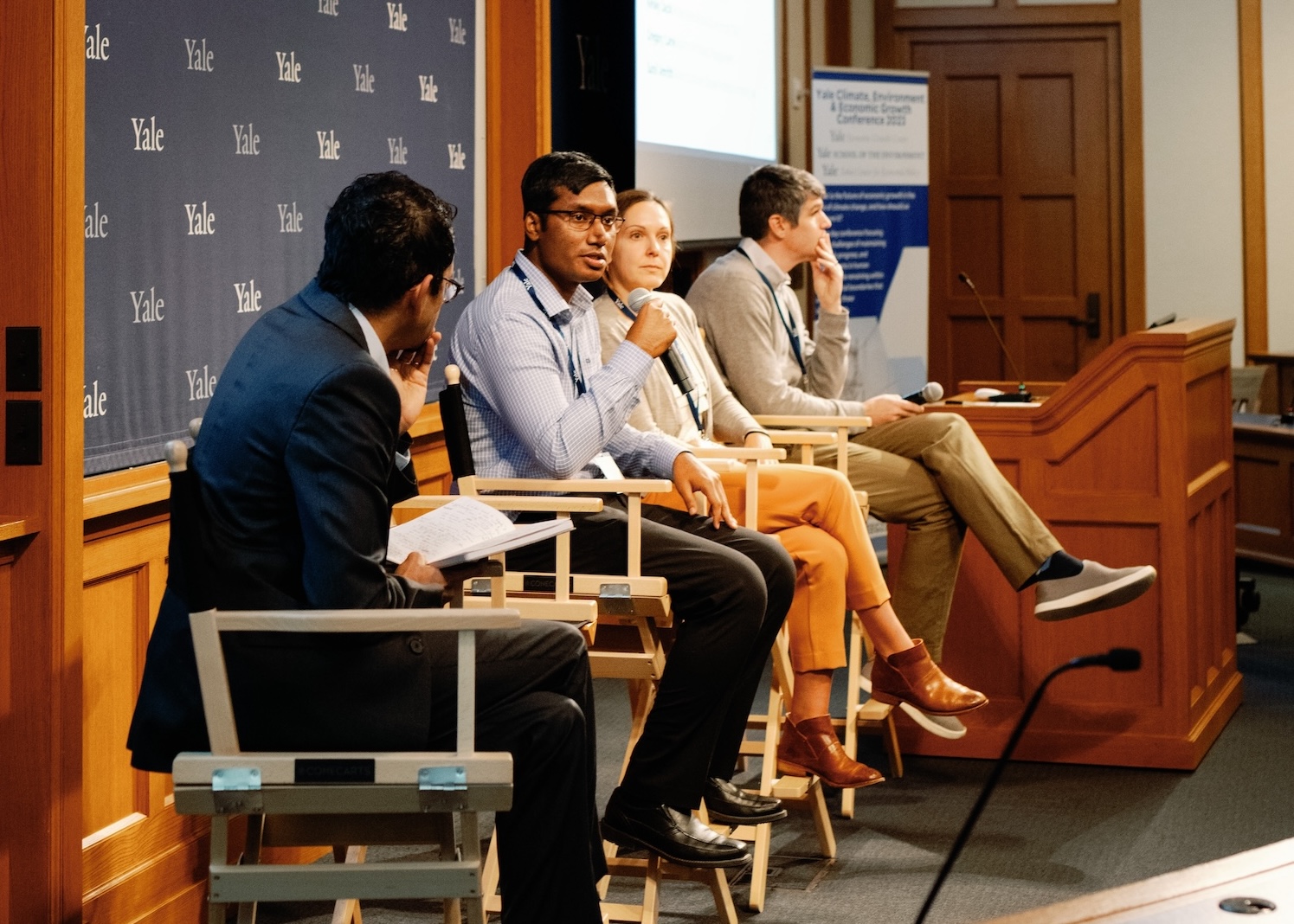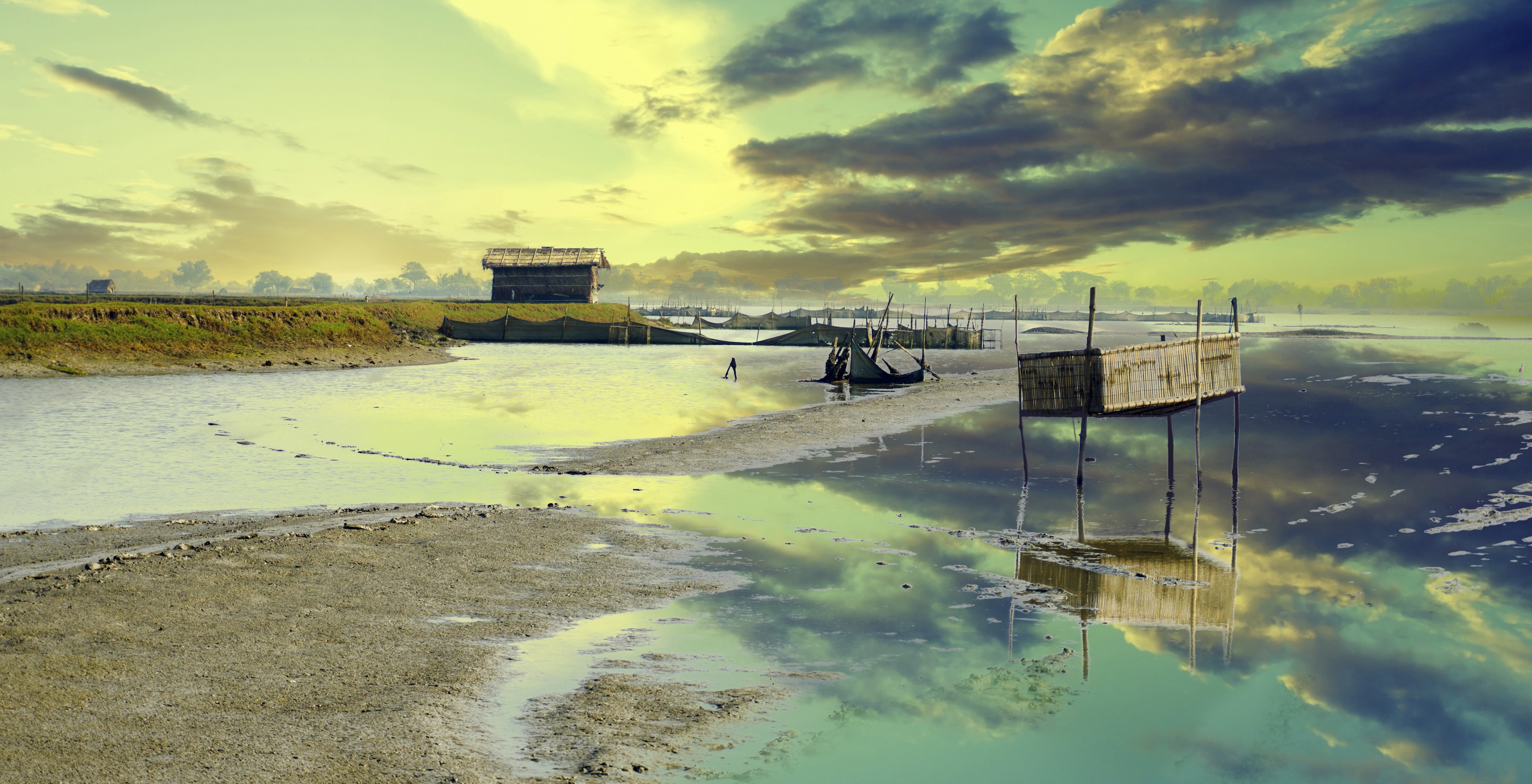Climate Change & Water Scarcity: Islamul Haque and Mushfiq Mobarak on crafting research based on community needs in Bangladesh
Voices in Development: A Podcast from Yale's Economic Growth Center explores issues related to sustainable development and economic justice in low- and middle-income countries. In this episode, host Catherine Cheney speaks with Islamul Haque and Mushfiq Mobarak about their new project focusing on the water crisis in Bangladesh – and the importance of conducting development research based on the needs on the ground.

Voices in Development: Climate Change & Water Scarcity • Transcript
In the coastal regions of Bangladesh, a country often described as “the ground zero of climate change,” rising sea levels are already creating a water crisis for an estimated 30 million people. Groundwater salinity has threatened crop cultivation and, with it, jobs in agriculture.
When economists Mushfiq Mobarak and Islamul Haque began to examine the economic impact of rising salinity levels, they expected to focus on the large-scale shift in land use from agriculture to aquaculture, as farmers replaced rice crops, which do not thrive in salty water, with shrimp, which does. The shift in land use was reducing employment in the region, making it necessary for the landless poor to migrate to towns and cities to find alternative sources of employment.

Mushfiq Mobarak takes part in the discussion at the 32nd Kuznets Memorial Lecture.
In response to these changes, Mobarak, the Jerome Kasoff ’54 Professor of Management and Economics at Yale University and founder and faculty director of the Yale Research Initiative on Innovation and Scale (Y-RISE), and Haque, a Y-RISE Postdoctoral Associate, set out to study the needs of unemployed farm workers pushed to migrate to towns and cities by the economic effects of climate change. However, when they began to talk to community members, they found a more urgent research need.
"Once we went in to speak to people who live in the area – that includes both people doing rice cultivation as well as shrimp farming, as well as the landless poor [...] they wanted to talk about the fact that they have drinking water scarcity, that salinity increase in the water not only affects their livelihood, it also affects their availability of water for drinking. And that’s a much more basic problem.” – Mushfiq Mobarak

Islamul Haque at the Yale Climate, Environment & Economic Growth Conference 2023.
Mobarak and Haque pivoted their research – marking a change in Mobarak’s work. Over the past 20 years, his research has often focused on how to get people to overcome what he describes as “aversions to technology take-up” – how to persuade people to adopt existing technologies already proven to improve lives, such as rainfall insurance and clean-burning cookstoves. During the Covid-19 pandemic, he examined how masks affect Covid-19 transmission, and how to get people to use them.
With the problem of water salinity, however, there wasn’t a clear technological solution – at least not one that would be sustainable in the long term. While rainwater collection would normally be an option for drinking water collection if the groundwater was unsuitable for drinking, existing methods of rainwater collection fell short in the context of coastal Bangladesh.
"One of the issues with rainwater harvesting technologies is that because it’s so expensive to implement in the context of coastal Bangladesh … it’s totally reliant on subsidies which are funded by donors. And therefore scaling up has been challenging because you need a large amount of grant money to induce adoption.” – Islamul Haque
Ultimately, a potential solution emerged: using reverse osmosis to filter saline groundwater and make it suitable for drinking. A key virtue of reverse osmosis technology is that it can be implemented by small entrepreneurs, unlike roof collection of rainwater and other methods that would require substantial donor funding. A pilot program conducted by BRAC, an international nonprofit, used training, loans, and technical support to entrepreneurs launching reverse osmosis water treatment businesses. Initial findings showed that an overwhelming majority of the entrepreneurs were able to generate enough revenue both to cover operational costs and pay back their loans.
Mobarak and Haque are now collaborating with BRAC on scaling the project up and measuring impact. They point out that finding sustainable solutions to Bangladesh’s water crisis today could benefit those who will be affected by rising sea levels in the future.
"I’m really excited to figure out how well this type of entrepreneurship-based strategy works. Because if we can get this type of strategy working, then here we’re just applying it to a specific problem of salinity intrusion and reverse osmosis technology. But if we can get it to work, then maybe we can facilitate more entrepreneurial ventures for a much broader class of development challenges.” – Mushfiq Mobarak
About the Guests
Mushfiq Mobarak is the Jerome Kasoff ’54 Professor of Management and Economics at Yale University with concurrent appointments in the School of Management and in the Department of Economics. Professor Mobarak has several ongoing research projects in Bangladesh, Nepal, and Sierra Leone. He conducts field experiments exploring ways to induce people in developing countries to adopt technologies or behaviors that are likely to be welfare-improving. He also examines the complexities of scaling up development interventions that are proven effective in such trials.
Islamul Haque is a postdoctoral associate at Yale Research Initiative on Innovation and Scale (Y-RISE). His current research focuses on understanding the frictions that limit climate change adaptation in developing countries, designing solutions to address these challenges, and generating evidence on their effectiveness and scaling complexities. He received his PhD in Economics from the University of Southern California.

Shrimp aquaculture in a laboon in Satkhira, Bangladesh. Photo by Arlo Magicman.